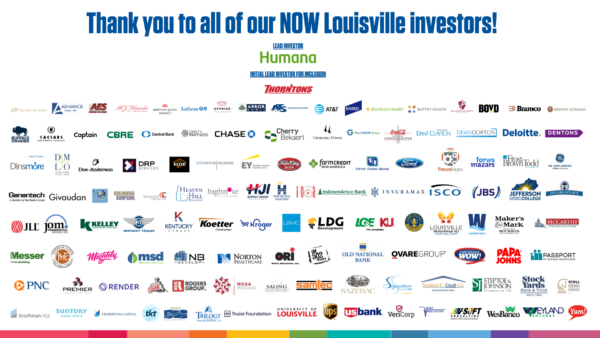Now Louisville: 2020-2025 Strategic Plan
Powered by a better today, and inspired by a richer tomorrow.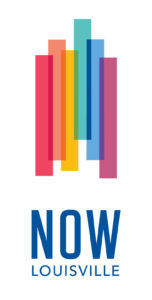
Greater Louisville has consistently been in the middle of the pack relative to our peer cities. Whether we’re talking about business attraction or innovation or talent or connectivity and beyond, we have not been bold enough to differentiate ourselves. This strategic plan is a roadmap to lay out the fundamental initiatives to advance our region and transform our perception. GLI, as a convener of the business community, must now be the catalyst for real change and help to propel our community to the next level.
GLI, in partnership with our business community, community partners and elected officials, have identified six pillars that are critical to the evolution of Greater Louisville. They center around innovation, startups, clusters, talent, inclusion, connectivity and mobility, and all work together to advance economic growth and prosperity for our region. Each pillar has designated metrics, requiring GLI to work in conjunction with our partners to move the needle and elicit real, measurable change.
Are you ready to get involved and support the important work of NOW Louisville to grow our region? Email Dean Schlader today.
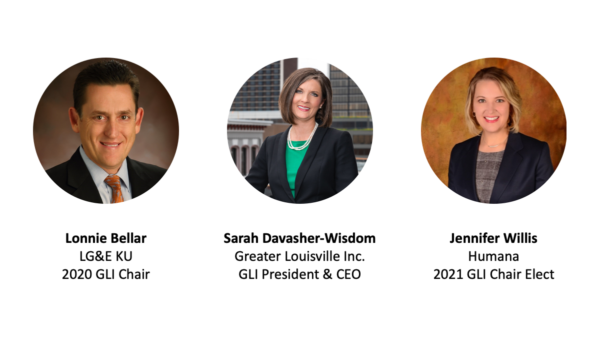
Innovation: Drive innovation and ideation by fostering applied research and development partnerships between industry and academia.
Within an environment of increasing competition, it is important for a region to be able to make informed decisions regarding the right strategic investments for its economic future. A key determinant of the long-term economic prosperity of any region lies within its ability to innovate and enhance economic output based upon that innovation. Generating an economic ecosystem conducive to innovation is increasingly central to the sustainability of a region’s economy.
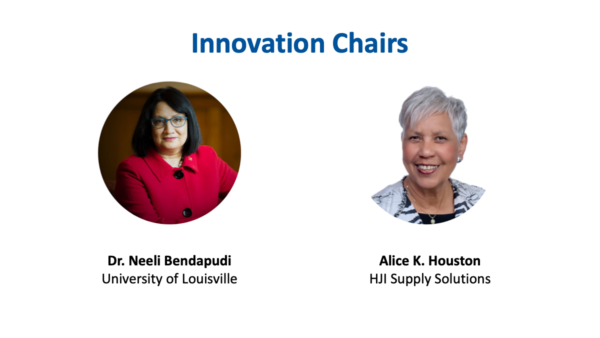
In support of the goal of driving innovation and ideation, GLI, along with our partner agencies, will implement three main actions:
- Action 1: Drive more research activity into the region that is aligned with industry needs by making businesses aware of what research can be contracted by local higher ed institutions.
- Action 2: Create the nation’s first BiState Applied Research & Development Center focused on Industry 4.0 technologies (the next generation of manufacturing).
- Action 3: Leverage the National Manufacturing Extension Partnership (MEP) program to provide regional firms with hands-on modernization assistance to help manufacturers reduce cost and attract new business.
How will GLI accomplish this?
- GLI will: Produce and distribute a future workforce trends assessment report in partnership with HEN, AML and TechFirst.
- GLI will: Host at least 5 MEP promotional events and facilitate at least 20 connections.
- GLI will: Produce a higher-ed capabilities report for the business community and convene at least 12 higher-ed institutions/industries in support of the development of the R&D Center.
Startups: Catalyze a regional entrepreneurial ecosystem to help diversify the economy and take advantage of emerging opportunities.
The economic vitality of regional economies depends, in large part, upon their capacity to foster the formation of new entrepreneurial-led businesses and sustain their growth as they scale-up and generate new, high-paying jobs in the community. There is a growing understanding of the need for a continuum of support services and assistance from the private and public sectors throughout the entrepreneurial development process as a startup endeavor is conceived, developed, grown, and brought to maturity. Entrepreneurs must have access to experienced management, financial capital, customers, and a supportive culture.
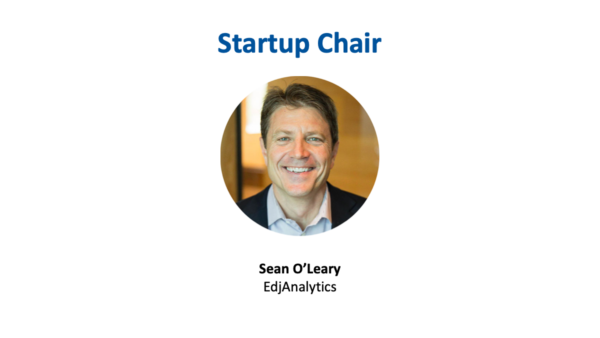
In support of the goal of catalyzing a regional entrepreneurial ecosystem, GLI, along with our partner agencies, will implement three main actions:
- Action 4: Drive relationships between smaller companies and regional corporate stakeholders with a focus on developing first customer programs.
- Action 5: Reinvigorate regional entrepreneurial support services by catalyzing a systemic entrepreneurial ecosystem.
- Action 6: Increase the availability of risk capital for scaling companies at all stages of development.
How will GLI accomplish this?
- GLI will: Facilitate 650 introductions between startups/scaling companies and GLI investors.
- GLI will: Develop new legislation solutions and advocate to increase access to capital.
Clusters: Scale and differentiate the region’s industry clusters.
Best practice in economic development recognizes that each region has a set of targeted industry sectors or “industry clusters” in which it can differentiate itself, thereby building comparative advantage within competitive global markets. Increasingly, emphasis is being placed on technology and innovation as drivers of 21st Century economic development. The ability of a region to lead in technology innovation and deployment in particular areas of industry (including both existing and emerging industries) is becoming a critical and defining driver of economic competitiveness.
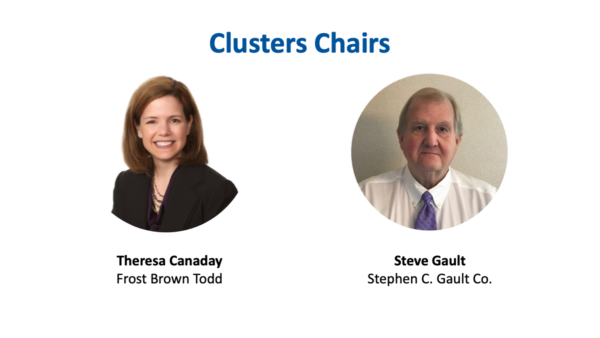
In support of the goal of scaling and differentiating industry clusters, GLI, along with our partner agencies, will implement two main actions:
- Action 7: Create/reactivate vibrant industry councils to identify and address common needs of the region’s targeted industries and foster networking and sector growth.
- Action 8: Develop a shared brand that is aligned with other regional marketing efforts and includes cluster branding.
How will GLI accomplish this?
- GLI will: Support the location of at least 5,000 jobs.
- GLI will: Execute at least 11 business targeting initiatives aimed at relocating at least 125 new jobs.
- GLI will: Deliver at least 150 project referrals to regional economic development partnership county partners.
- GLI will: Launch a tech network to support and grow Greater Louisville’s tech eco-system.
- GLI will: Conduct 3 network alignment assessments to ensure economic development, talent, and public policy priorities are aligned within industry clusters.
- GLI will: Support HEN, AML and TechFirst growth through 33+ promotional events/publications, 60+ media mentions and recruit at least 240 new members.
- GLI will: Develop a regional brand identity and promote that identity through the use of the Louisville Brand Box assets. GLI will: Place at least 143 earned media stories featuring the Greater Louisville region assets.
Talent: Develop, retain, and attract talent.
Talent can and must be an essential part of any strategy by a firm or region to create a competitive advantage. Talent is one of the few market factors that is both locally based and has the potential to create a comparative advantage that can differentiate a region from its competition. In addition, talent is an essential element in implementing advanced technology solutions. The quantity, quality, and management of talent are competitive factors very much in local control and must be managed with the future of work in mind.
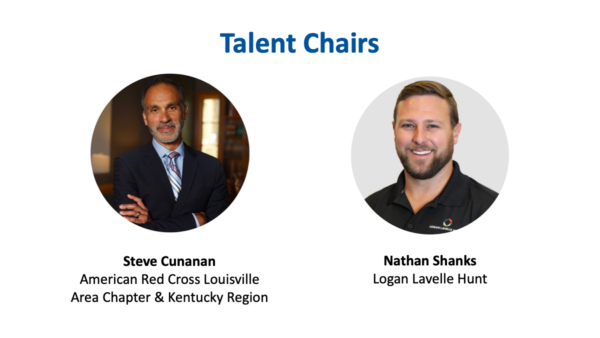
In support of the goal of talent attraction, retention, and development, GLI, along with our partner agencies, will implement four main actions:
- Action 9: Increase industry involvement and coordinate engagement and support for educational initiatives across the talent development spectrum.
- Action 10: Leverage the annual occupational needs assessment to actively inform and educate students, parents, and educators on career opportunities that exist in the region’s industry clusters and the educational requirements and career pathways needed to access them.
- Action 11: Dramatically scale career-oriented, experiential learning opportunities (internships, co-ops, apprenticeships, etc.) across the region.
- Action 12: Expand the Live in Lou campaign to focus on career opportunities within key industries while maintaining emphasis on quality of place.
How will GLI accomplish this?
- GLI will: Launch and market a workforce ecosystem hub that is a web-based site so employers can easily learn about workforce programs, initiatives, and organizations in one place. GLI will: Engage in at least 60 meetings with employee training institutions to maintain awareness of program needs and provide relevant support.
- GLI will: Produce at least 12 supplemental workforce resources related to essential workforce topics such as recruitment, internships, and support for the removal of barriers to work. GLI will: Engage in at least 750 employer talent-related outreach calls to engage companies to actively participate in talent best practices.
- GLI will: Launch an employer best practices program and recruit at least 70 employer participants.
- GLI will: Develop a teacher externship program and recruit at least 20 employer participants to ensure teachers are apprised of industry trends and job demands, and bring that to the classroom for curriculum development.
- GLI will:Connect at least 90 employers with work-based learning opportunities for disconnected youth.
- GLI will: Recruit at least 25 MBE-owned/led businesses with STEM pathways.
- GLI will: Develop, launch, and support work-based learning (internship) portal and hold at least 30 employer internship coaching sessions.
- GLI will: Grow Live in Lou social channels by at least 74,000 followers.
- GLI will: Develop and execute targeted talent attraction campaigns aimed at increasing the working age population (25-54), gig workers, marginalized talent, veterans and converting residents currently waiting out the COVID-19 pandemic locally (pending funding from private label campaigns).
- GLI will: Build at least 75 connections with employers and educators to affect talent pipelines and curriculum development.
- GLI will: Deepen university connections with at least 195 regional universities, expanding outreach to individual colleges, deans, faculty, admissions offices, etc.
- GLI will: Increase City Champ participants by at least 195 people and execute outreach strategies to attract individuals to our region.
Inclusion: Intentionally support the success of underrepresented group enterprises and talent.
Within an environment of increasing competition, for the Greater Louisville region to prosper, economic opportunity must be available for all people. Cultural diversity—a place’s openness to different races, cultures, religions, gender identities, and sexual orientations—plays a key role in economic growth, and this is evident now more than ever. Expanding inclusivity and working to overcome implicit and explicit bias will require deep exploration of how racism has impacted and continues to impact our region, as well as intentional and meaningful action to ensure prosperity for marginalized communities. Eliminating racism and promoting connectedness, diversity, and inclusion are necessary steps toward improving Greater Louisville. Initiatives implemented must be rooted in identifying solutions that support educational and economic initiatives affecting marginalized communities, and they must include a focus on intentionality to ensure they succeed.
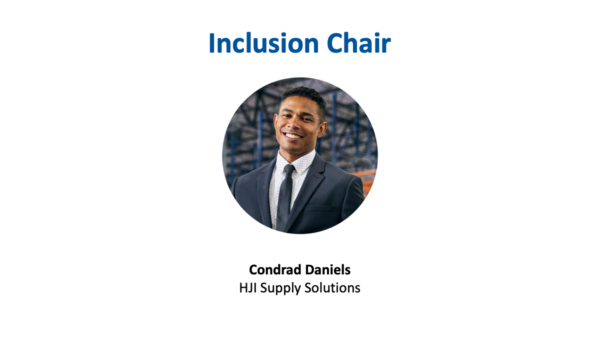
In support of advancing inclusion, GLI, along with our partner agencies, will implement two main actions:
- Action 13: Drive the inclusion, development, support, and amplification of minority- and women-owned business throughout the regional economy.
- Action 14: Ensure diverse talent is connected and feels a sense of place in the region.
How will GLI accomplish this?
- GLI will: Convene the Business Council to End Racism for discussion, trust-building, education, and action.
- GLI will: Develop a Minority Business Accelerator to equip marginalized enterprises and startups with the tools and resources necessary to scale their businesses, in addition to promoting and connecting at least 150 companies with SBDC/GLI by providing technical assistance, mentorships, and access to capital.
- GLI will: Launch the Career Acceleration Network (CAN) and recruit at least 40 employer participants to strategically re-engage overlooked, unemployed, and underemployed talent pools through career pathway development and support services for common barriers to work for underserved communities.
- GLI will: Facilitate at least 535 introductions between MWBEs and businesses to increase contracting opportunities.
- GLI will: Identify and communicate at least 60 MWBE contracting opportunities from regional economic anchors.
- GLI will: Host at least 10 CEO roundtable events on diverse talent and building a more inclusive workplace.
- GLI will: Host at least 10 events/trainings to connect MWBEs with resources and best practices.
- GLI will: Partner on a directory of MWBE businesses and the promotion of it to corporations to diversify supplier networks.
- GLI will: Host at least 18 DE&I events to deepen awareness around the impact of inclusion in the region.
- GLI will: Develop new legislation solutions and advocate for support for individuals with criminal records to successfully re-enter society.
Connectivity + Mobility: Connect the region, while investing in key mobility solutions and other 21st Century infrastructure initiatives.
The Greater Louisville region has geographical divisions that are political in nature and not simply created by natural land formations. This includes bi-state divisions, urban-rural divisions, and lack of strong long-term collaboration among well-intended organizations. Moreover, there is a need to connect communities literally through intentional planning efforts, physical infrastructure, and advanced mobility solutions. Connectedness is a critical component to differentiating Greater Louisville as a region and making economic development, investment, and talent gains on our peer cities. Greater Louisville must improve the connection between people and opportunity, both physically and digitally, to remove barriers that prevent full participation in the economy. This is especially true in the 21st Century as opportunity clusters into cities and around technology, and due to the changes that have come as a result of COVID-19.
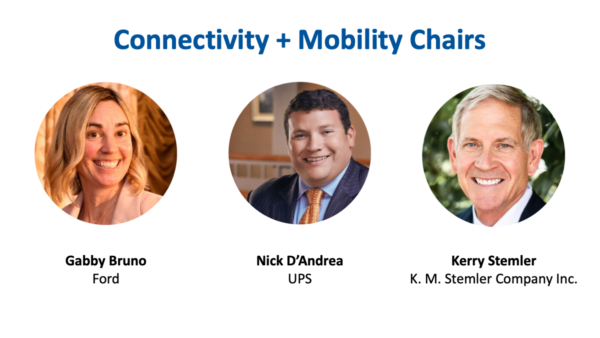
In support of advancing inclusion, GLI, along with our partner agencies, will implement five main actions:
- Action 15: Support the ongoing efforts to coordinate nonprofit leaders through inter-agency collaboration.
- Action 16: Break down barriers between the Greater Louisville region and Frankfort and Indianapolis.
- Action 17: Leverage the Move Louisville Plan and the Transit Authority of River City (TARC) Strategic Plan to ensure connectedness across the region.
- Action 18: Continue to address the digital divide.
- Action 19: Encourage residential and commercial density in areas around established entertainment, universities, entrepreneurial hubs, and dense downtown centers.
How will GLI accomplish this?
- GLI will: Educate at least 150 employers about digital divide restrictions and hiring/training reevaluation processes.
- GLI will: Secure at least 18 corporate partners to donate hardware.
- GLI will: Develop new legislation solutions and advocate for legislation allowing greater local tax flexibility, identifying bi-state tax incentives, leading capital connections in KY and IN, public transportation funding, expanded airlift, the expansion of programming at regional universities, planning, zoning, and land development to support density, and advocacy to reform SEEK.
- GLI will: Lead coalitions to support metro advocacy issues.
FUNDRAISING TO ACHIEVE GOALS: We need your help.
National and international competition for businesses, jobs, and talent is fierce. We must take our efforts to the next level if we are to compete and win. This strategic plan is about growing businesses and jobs. It is about selling Greater Louisville to the world. It is about focusing on innovation and entrepreneurship. It is a call for equity and inclusion. This plan tackles the biggest economic challenges facing our region with well-conceived strategies and clear metrics for the next five years.
However, just as there is no single root cause for the challenges we face, there is also not a single strategy, initiative, or infrastructure project that can overcome those challenges. Instead, a multi-pronged approach to economic development is needed. We must attack our challenges from a variety of angles in a strategic, well-coordinated, and efficient manner to innovate, develop, grow, and serve our community.
Download the Fundraising Plan Here
Funding required to fulfill the actions outlined in this strategic plan include:
- NEW: Operational Funding Needed (2021 – 2025): Like many businesses, GLI has been impacted by the pandemic. We currently operate on the leanest staff we have ever had, and the tasks that lie ahead are more monumental than ever. To ensure that work related to this plan thrives, and to ensure that we can accomplish goals set across innovation, startups, clusters, talent, inclusion, connectivity and mobility, NEW operational funding to maintain existing staff will be required.
- NEW 2020: Staff Member, Workforce & Industry Program Manager: This position will coordinate with business and industry networks to ensure university collaboration, identify workforce trends, and better inform investment and innovation (Action 1, shared with Actions 4, 7, 8 & 9).
- NEW 2020: Staff Member, DE&I Project Director: This position will manage diversity, equity, and inclusion efforts, as well as the Business Council to End Racism (Actions 13 and 14).
- NEW 2020: Staff Member, DE&I Business Support Manager: This position will provide direct business support, such as financial guidance, strategic plan development, etc., to underrepresented owned enterprises (Action 13).
- NEW 2021: Staff Member, Workforce & Education Project Manager: This position will support on-going workforce & education efforts, promote work-based learning opportunities, expand best practices resources, and oversee the expansion of equitable workforce development initiatives (Actions 9 & 11).
- NEW 2021: Consultant, Regional Audit Report: This consultant will perform asset and research capabilities assessment among regional universities identifying the assets available to industries, as well as an industry workforce needs assessment related to innovation (Action 2).
- NEW 2021: Staff Member, Economic Development Project Manager: This position will support traditional economic development efforts including lead generation outreach, industry engagement, project manager and regional partner coordination (Action 7).
- NEW 2021: Special Project Funding: Funds will be required to support the development of an employer-facing workforce ecosystem hub (Action 9).
- NEW 2021: Consultant, Economic Development: This consultant will facilitate a strategic plan around nationwide best practices to break down state barriers and move bi-state regionalism forward (Action 17).
- NEW 2021 (CONTINGENT): Staff Member, Talent Marketing Manager: This position will support marketing, advertising, sponsorship, communications efforts to promote Live in Lou supporting both talent attraction and retention initiatives (Action 12).
- NEW 2021 (CONTINGENT): Staff Member, Research Manager: This position will execute organizational research to support economic development, workforce, policy, and industry network efforts (Action 7).
- NEW 2022 (CONTINGENT): Staff Member, Economic Development Project Manager: This position will support traditional economic development efforts including lead generation outreach, industry engagement, project manager and regional partner coordination (Action 7).
- NEW 2023 (CONTINGENT): Consultant, Regional Brand Identity Development: This consultant will facilitate the development of the identifiable regional brand name (Action 8).
- NEW 2021, 2022, 2023, 2024, 2025 (CONTINGENT): Campaign Advertising Support: Funds will be necessary to initiate out-of-market advertising campaigns to attract talent to the region (Action 12).
Thank you to the following GLI Investors who have contributed to the 2020-2025 Strategic Plan and its initiatives:
